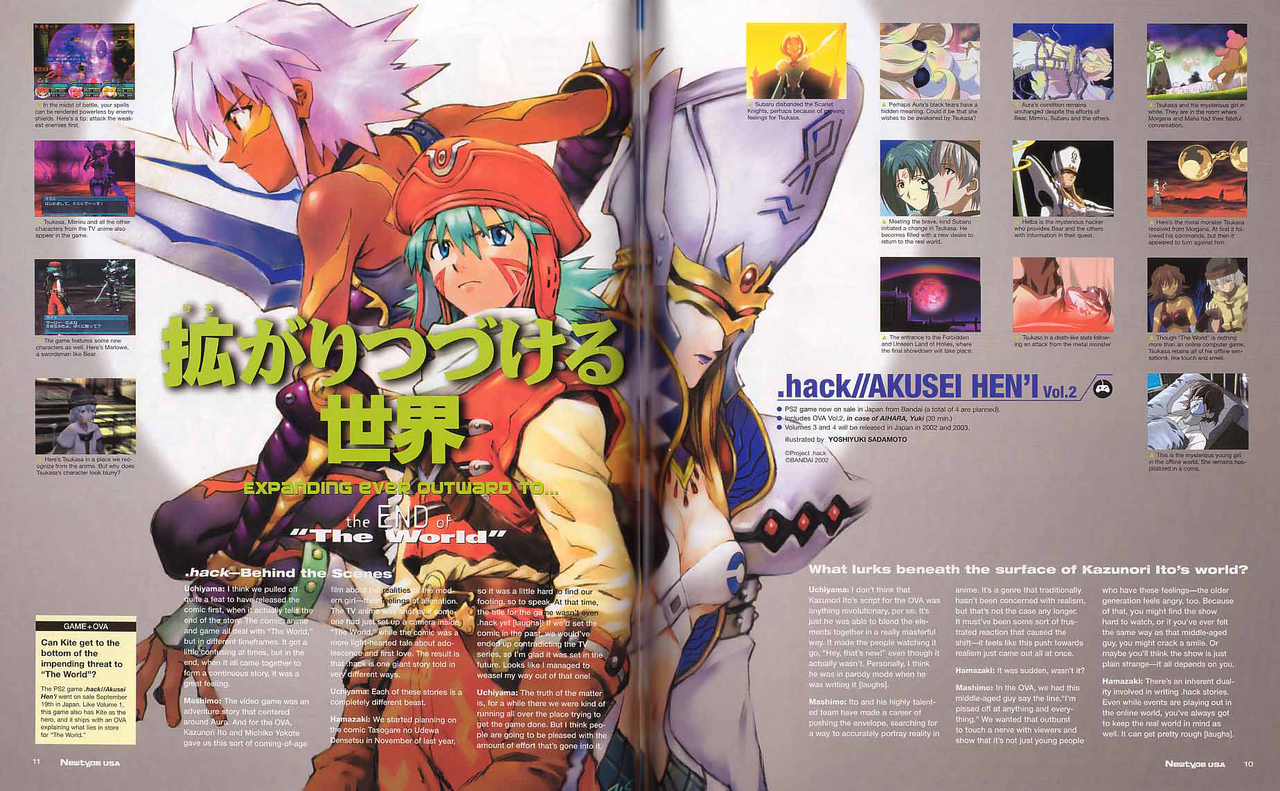
What lurks beneath the surface of Kazunori Ito's World?
(page 10)
Uchiyama: I don't think that Kazunori Ito's script for the OVA was anything revolutionary, per se. It's just he was able to blend the elements together in a really masterful way. It made the people watching it go, "Hey, that's new!" even though it actually wasn't. Personally I think he was in parody mode when he was writing it [laughs].
Mashimo: Ito and his highly talented team have made a career of pushing the envelope, searching for a way to accurately portray reality in anime. It's a genre that traditionally hasn't been concerned with realism, but that's not the case any longer. It must've been some sort of frustrated reaction that caused the shift—it feels like this push towards realism just came out all at once.
Hamazaki: It was sudden, wasn't it?
Mashimo: In the OVA, we had this middle-aged guy say the line "I'm pissed off at anything and everything." We wanted that outburst to touch a nerve with viewers and show that it's not just young people who have these feelings—the older generation feels angry, too. Because of that, you might find the show hard to watch, or if you've ever felt the same way as that middle-aged guy, you might crack a smile. Or maybe you'll think the show is just plain strange—it all depends on you.
Hamazaki: There's an inherent duality involved in writing .hack stories. Even while events are playing out in the online world, you've always got to keep the real world in mind as well. It can get pretty rough [laughs].
.hack—Behind the Scenes
(page 11)
Uchiyama: I think we pulled off quite a feat to have released the comic first when it actually tells the end of the story. The comic, anime, and game all deal with "The World," but in different timeframes. It got a little confusing at times, but in the end when it all came together to form a continuous story, it was a great feeling.
Mashimo: The video game was an adventure story that centered around Aura. And for the OVA, Kazunori Ito and Michiko Yokote gave us this sort of coming-of-age film about the realities of the modern girl—their feelings of alienation. The TV anime as shot as if someone had just set up a camera inside "The World," while the comic was a more light-hearted tale about adolescence and first love. The result is that .hack is one giant story told in very different ways.
Uchiyama: Each of these stories is a completely different beast.
Hamazaki: We started planning on the comic Tasogare no Udewa Densetsu in November of last year, so it was a little hard to find our footing, so to speak. At that time, the title for the game wasn't even .hack yet [laughs]! If we'd set the comic in the past we would've ended up contradicting the TV series, so I'm glad it was set in the future. Looks like I managed to weasel my way out of that one!
Uchiyama: The truth of the matter is, for a while there we were kind of running all over the place trying to get the game done. But I think people are going to be pleased with the amount of effort that's gone into it.
Yuki Kajiura—the [woman]* behind the music of .hack
(page 12)
Mashimo: Kajiura is the consummate musician. For [her], music is everything. And yet, [she] doesn't rely on musical cliches, which is exactly why we regard [her] so highly.
Uchiyama: Mashimo and Kajiura convinced me that music was crucial to game creation.
Mashimo: Kajiura's songs are not only excellent in their own right, they're also the perfect fit for this show. So we raised the volume but some people complained they couldn't hear the dialogue. Well, I have something to say to all you complainers—it's better that way [laughs]! We're doing it on purpose so if you've got a complaint you can take it up with me [laughs]. We just had to turn it up.
Uchiyama: Even Kajiura's simplest songs have this sort of underlying darkness.
Mashimo: You can be listening to one of [her] songs thinking it's a nice, heartwarming piece, when all of a sudden that darkness sneaks up on you. Kajiura's work is almost venomous. I mean that in a good way, of course.
Mashimo: As a matter of fact, right now I'm in the middle of writing a .hack novel that's set slightly before the events in the anime. The hardest part about it is incorporating the feel of Kajiura's music into the narrative. It's all sort of trial-and-error right now, I'm not quite there yet.
Article images and captions
(page 10)
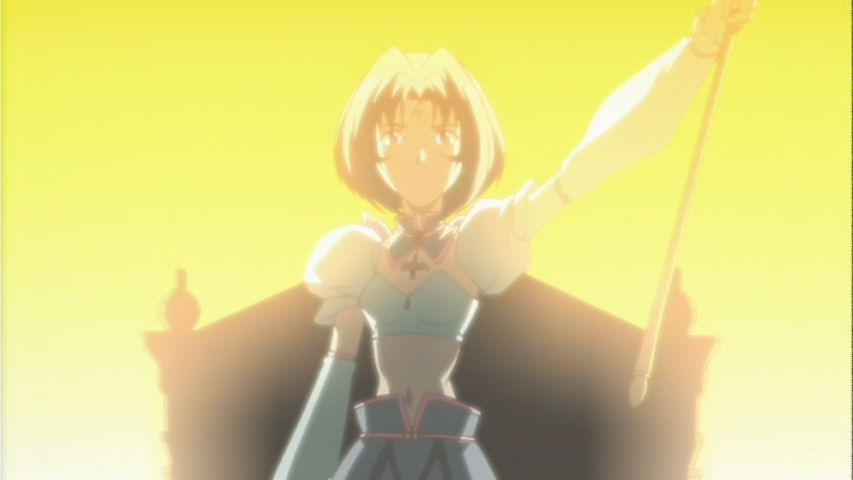
Subaru disbanded the Scarlet Knights, perhaps because of growing feelings for Tsukasa.
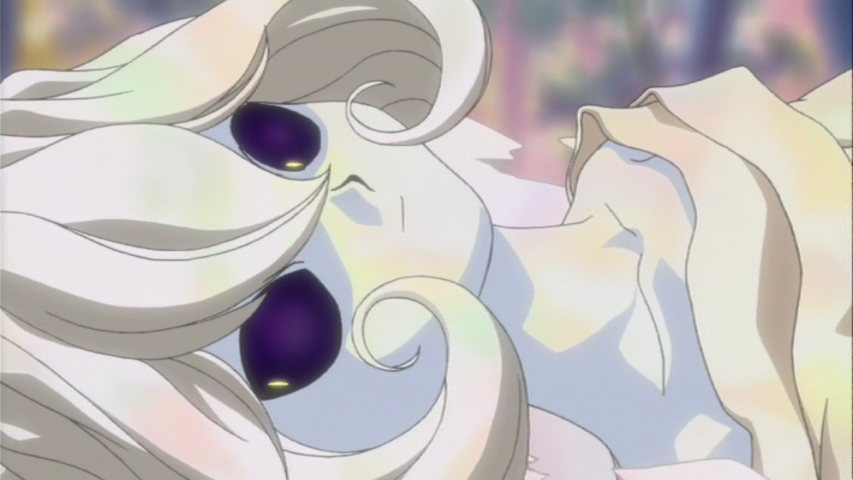
Perhaps Aura's black tears have a hidden meaning. Could it be that she wishes to be awakened by Tsukasa?
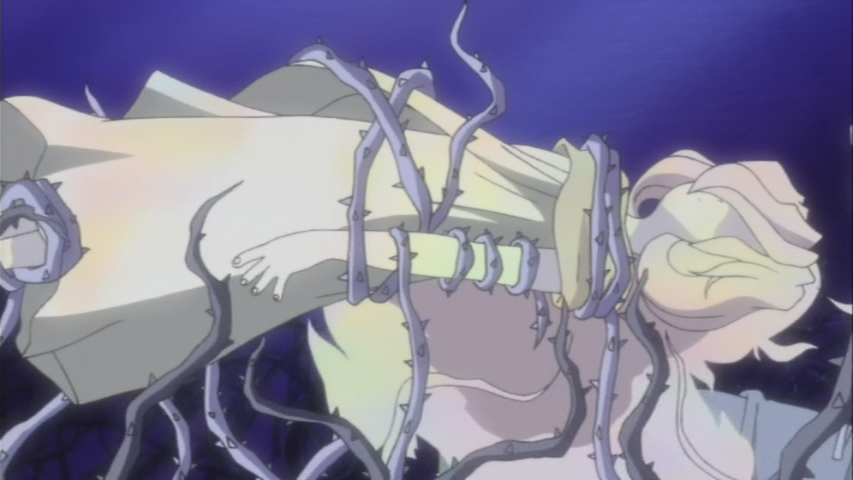
Aura's condition remains unchanged despite the efforts of Bear, Mimiru, Subaru, and the others.
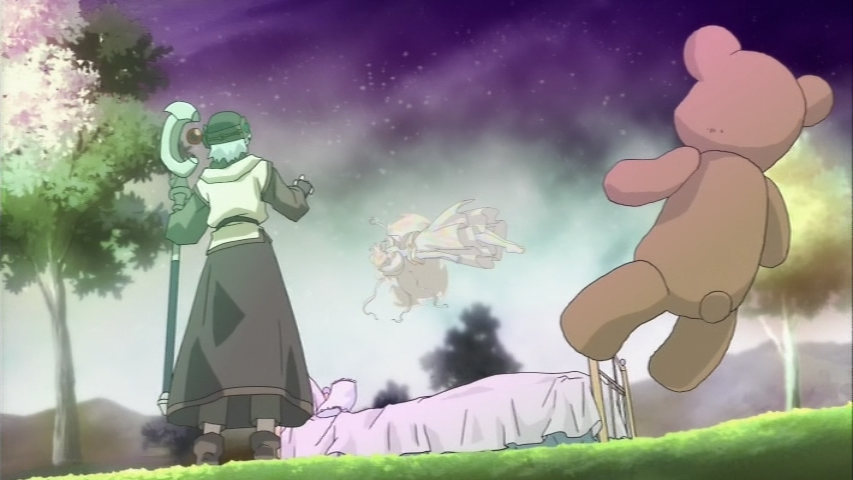
Tsukasa and the mysterious girl in white.
They are in the room where Morgana and Maha had their fateful conversation.
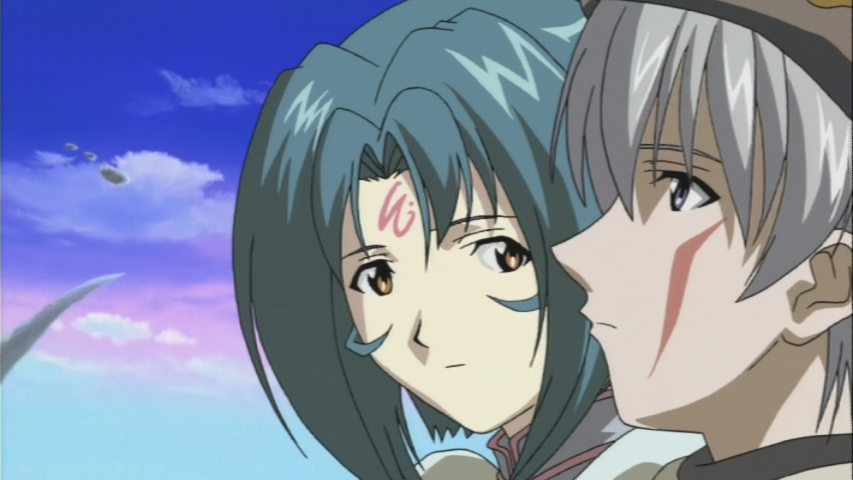
Meeting the brave, kind Subaru initiated a change in Tsukasa.
He becomes filled with a new desire to return to the real world.
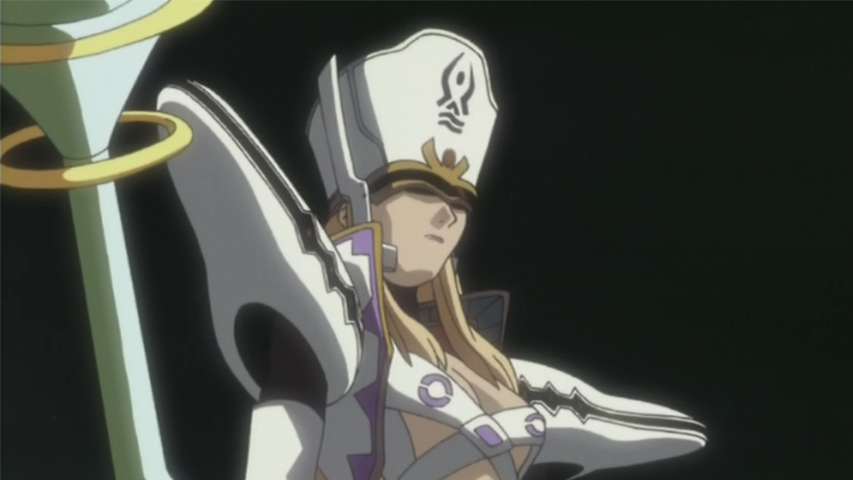
Helba is the mysterious hacker who provides
Bear and the others with information in their quest.
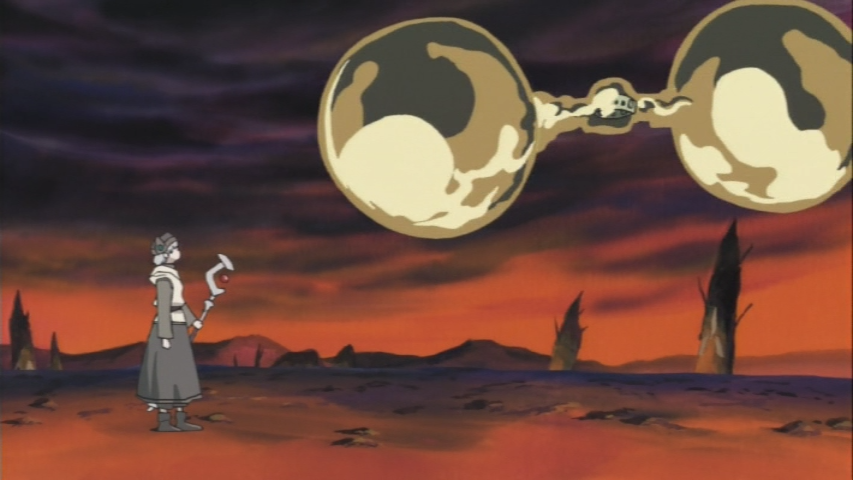
Here's the metal monster Tsukasa received from Morgana.
At first it followed his commands but then it appeared to turn against him.
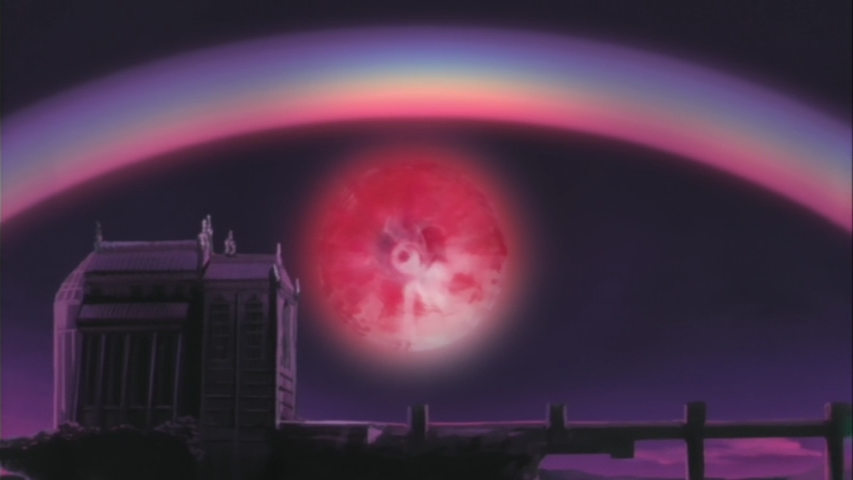
The entrance to the Forbidden and Unseen land of Holies,
where the final showdown will take place.
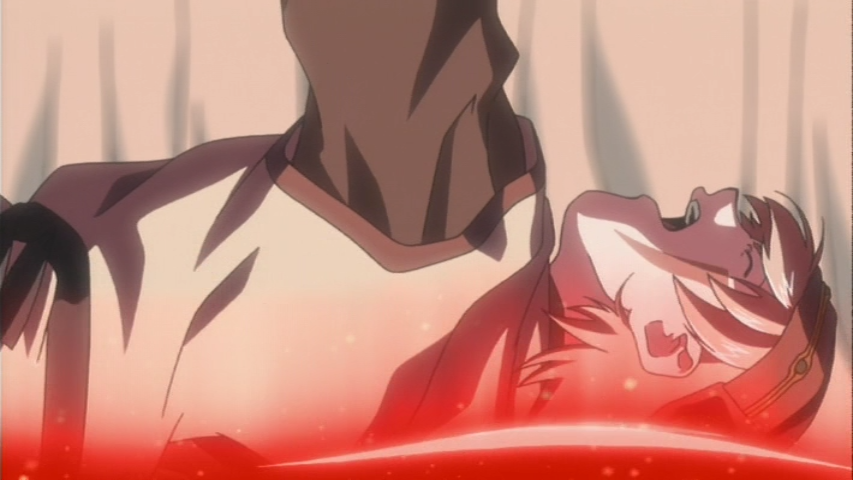
Tsukasa in a death-like state
following an attack from the metal monster.
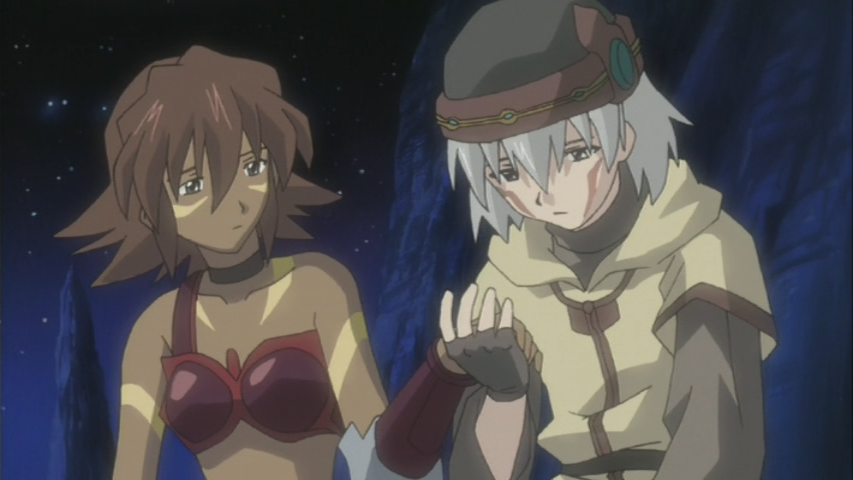
Though "The World" is nothing more than an online computer game,
Tsukasa retains all his offline sensations, like touch and smell.
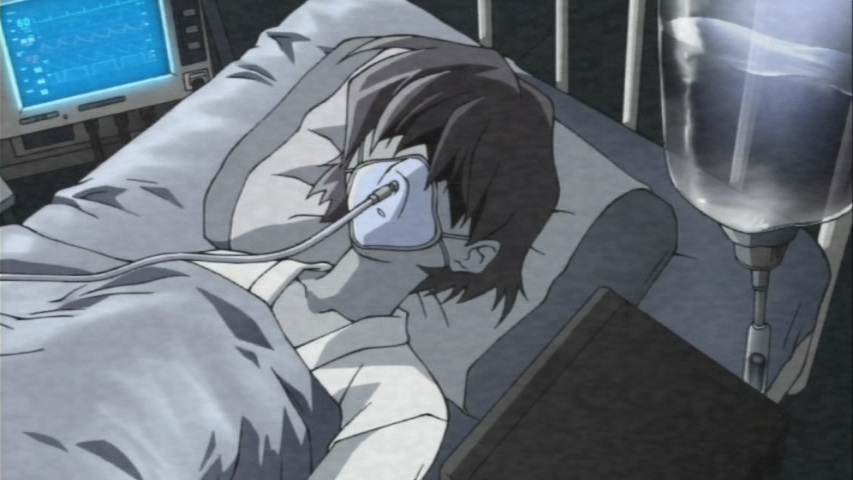
This is the mysterious young girl in the offline world.
She remains hospitalized in a coma.
Notes:
* Kajiura Yuki was mistakenly referred to as a man in the Newtype USA translation. Applied fixes here for posterity.
